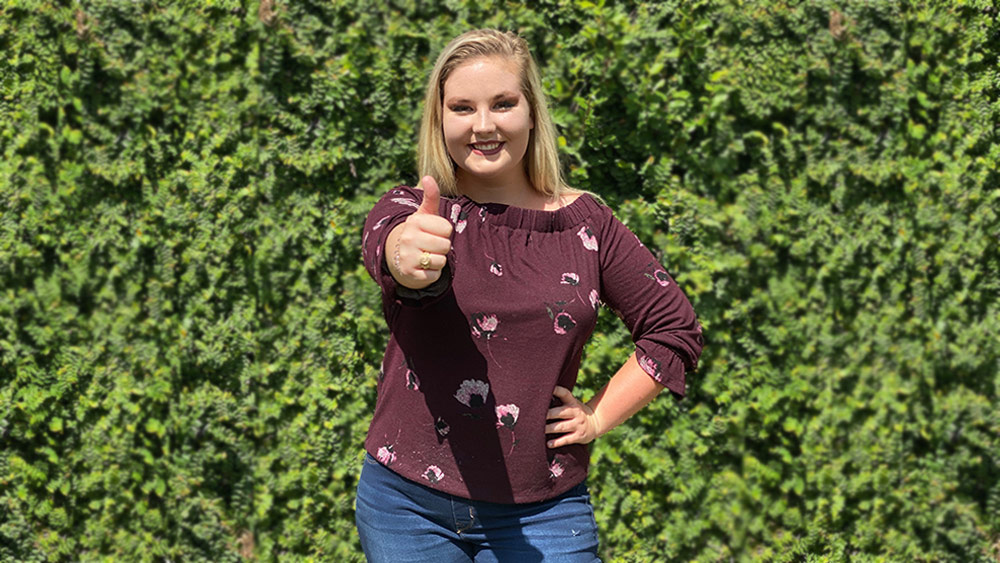
As a fifth-generation Aggie, Julia Reed, a junior in the Department of Ocean Engineering at Texas A&M University, applied to wear burnt orange to tease her father before she packed her bags for Aggieland.
The first engineer in her family, Reed grew up in Texas City – just a short 15-minute drive from Galveston and the coast. She originally planned to take to the sky and study aerospace engineering. However, after taking a physics class at Texas A&M’s waterfront Galveston campus, where she learned more about how ocean engineering could merge disciplines in a way that suited her interests, her gaze shifted to the waves and the sea.
“I've been exposed to the water my entire life,” Reed said. “And I liked how you could apply engineering principles to the ocean, but also learn more about ocean processes than the land.”
Since joining the department, Reed has found a home in the local branches of the Marine Technology Society, the Society of Naval Architects and Marine Engineers, the Society of Women Engineers and Women in Engineering. While COVID-19 has made participation in these organizations difficult, they have opened doors to engineering and industry advice, insight and mentorship for Reed – even during a global pandemic.
As she finds mentors of her own, she has become that for others as she serves as a peer mentor for first-generation students on campus in the First-Generation Engineering Students Mentoring Program.
First-generation students, those who are the first in their family to ever attend a college or university, often have no direct network to tap into when starting their academic journey. This makes the transition to university life and unraveling the intricacies of such things as financial aid and registration, more difficult for them.
And, coming from a multigenerational history of love for Texas A&M, Reed is happy to share her passion, knowledge and experience with her extended Aggie family and make them feel welcome.
“It's nice to meet with first-generation students and talk about engineering and learn about what got them started,” Reed said. “I've lived in a bunch of different places in my life and know what it’s like to be completely new to a place. My family's just always moved around. So, it's nice to talk about that, too, and to relate with them on a deeper level.”
Having been originally contacted by Dr. Bimal Nepal, director of the First-Generation Engineering Students Mentoring Program and professor in the Department of Engineering Technology and Industrial Distribution, Reed completed her peer-mentor training and joined the program at a campus club expo in 2019. There, she helped spread the word about the organization, hand out brochures and even met a few new students who would become her first mentees.
As a mentor, Reed acts as a lighthouse for students – guiding and ever-present, even if she is just in the background of the natural ebb and flow of their semester. She makes it a point to meet with her mentees however often they would like – usually once every two weeks – but also sends them messages to check in and see how they are faring throughout the semester and if there is anything she can do to help them navigate their time in the College of Engineering. She offers advice when needed, tutoring when possible and a listening ear, always.
And while she doesn’t expect anything in return, Reed explained that the mentorship experience has helped her develop, too.
“Before being in this organization, I feel like I wasn't much of a leader,” she said. “I was more of a follower. So, I feel like it's helped me step up my leadership skills, for sure, and I'm able to take initiative more often now.”